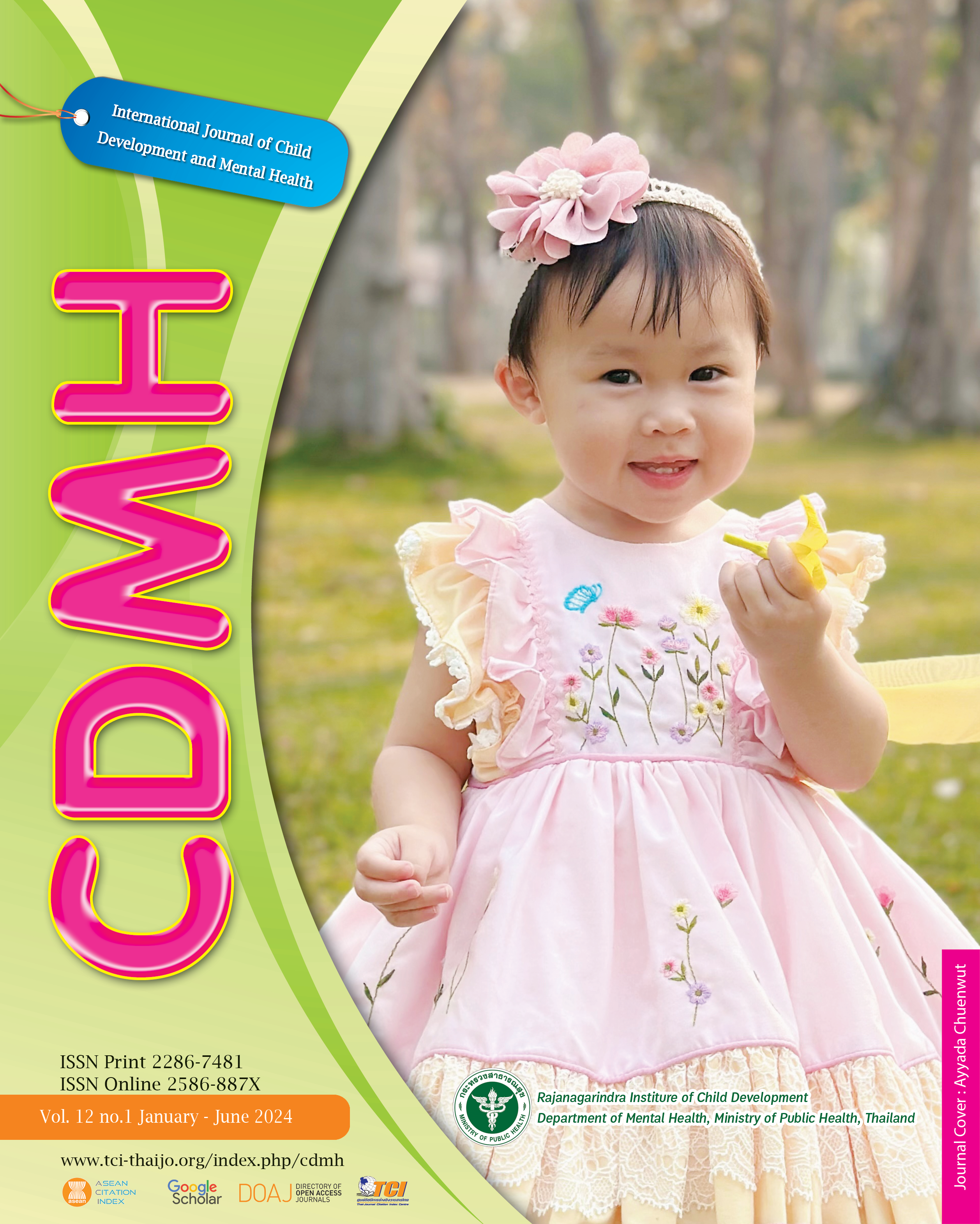What Should the Role of Peer Mental Health Support Worker Involve? Youth Perspectives from Pakistan and South Africa Youth Perspectives from Pakistan and South Africa
Main Article Content
Abstract
Globally, child and youth mental health needs are largely unmet, especially in resource-constrained settings. Youth are uniquely placed to provide mental health support, but there is limited evidence on what their role should involve. The aim of this study was to establish how youth themselves conceptualized the peer support worker role. We captured the perspectives of 45 youth from Pakistan and South Africa. Focus group discussions were analyzed through a thematic codebook framework. Key findings indicated how youth can improve their mental health care, as well as those of their peers, by recognizing early signs of mental health concerns, developing adaptive coping mechanisms, strengthening social relationships, and mobilizing additional resources through advocacy and mediation. Peer support can be enhanced by skills such as lack of judgement, empathy, encouragement and good communication. Peer support workers can play an important role in promoting children’s mental health, particularly in resource-constrained settings. Such posts should be clearly defined, incorporated within existing service systems, and provided with adequate funding, training and supervision.
Article Details

This work is licensed under a Creative Commons Attribution-NonCommercial-NoDerivatives 4.0 International License.
The authors retain copyright and permit the journal the copyright of first publication
Articles, once having passed the review process and accepted for publication in the CDMH Journal, are copyrighted under the CDMH Journal, Department of Mental Health, Ministry of Public Health. Please be aware distribution of CDMH Journal content for commercial purposes without permission is expressly prohibited. However, distribution with intent to educate, advocate, or spread awareness within the general public and research communities is permitted and encouraged with the understanding that the CDMH Journal Editorial Board do not hold jurisdiction or liability for any accompanying comments, text, or information from third parties, either in favor for or against the original article’s assertions, conclusions, methodology, or content.
References
Adler, K., Salanterä, S., & Zumstein-Shaha. (2019). Focus group interviews in child, youth, and parent research: An integrative literature review. International Journal of Qualitative Methods, 18. https://doi.org/10.1177%2F1609406919887274
Braun, V., & Clarke, V. (2022). Thematic analysis: A Practical Guide. London: Sage.
Canada Drug Health Technology Assessment (2022). Peer support programs for youth mental health. Peer Support Programs for Youth Mental Health | CADTH [Accessed June 2024]
Clark, S., Madhavan, S., & Kabiru, C. (2018). Kin support and child health. Social Science Research, 76, 105-119.
Cooper, M., McGinnis, S., & Carrick, L. (2014). School-based humanistic counselling for psychological distress in young people. Counselling & Psychotherapy Research, 14(3), 201-211.
Heerde, J., & Hemphill, S. (2018). Examination of associations between informal help-seeking behavior, social support, and adolescent psychosocial outcomes: A meta-analysis. Developmental Review, 47, 44–62.
Khalil, A., Gondal, F., Imran, N., & Azeem, M.W. (2020). Self-stigmatization in children receiving mental health treatment in Lahore, Pakistan. Asian Journal of Psychiatry, 47, 101939. https://doi.org/10.1016/j.ajp.2019.10.019
Kitelele, F., Lelo, G., Akele, C., Lelo, P., Mafuta, E., Tylleskar, T., & Kashala-Abotnes, E. (2022). “The peer educator is the game changer of my life”: Perceptions of adolescents living with HIV in DR Congo on involving peer educators in HIV disclosure. Children, 9, 1239. https://doi.org/10.3390/children9081239
Lubman, D., Cheetham, A., Jorm, A., … & Proimos, J. (2017). Australian adolescents' beliefs and help-seeking intentions towards peers experiencing symptoms of depression and alcohol misuse. BMC Public Health, 17(1), 658.
Patel, V., Saxena, S., Lund, C., ... & Unutzer, J. (2018). The Lancet Commission on global mental health and sustainable development. Lancet, 392(10), 1553-1598.
Rose-Clark, K., Bentley, A., Marston, C., & Prost, A. (2019). Peer-based community-facilitated interventions for adolescent health in low- and middle-income countries. PLoS ONE, 14(1), e0210468. https://doi.org/10.1371/journal.pone.0210468
Roy, K., Shinde, S., Sarkar, B., Malik, K., Parikh, R., & Patel, V. (2019). India’s response to adolescent mental health: A policy review and stakeholder analysis. Social Psychiatry & Psychiatric Epidemiology, 54, 405-414.
Shujaat, Q. (2015). State of children in Pakistan. Islamabad. http://www.mohtasib.gov.pk/images/pdfs/SOCP.pdf [Accessed June 2024]
Tomlinson, M., Kleintjes, S., & Lake, L. (2022). South African Child Gauge 2021/2022: Child and adolescent mental health. The Children’s Institute, University of Cape Town. The South African Child Gauge 2021/2022: Child and Adolescent Mental Health | Better Care Network [Accessed June 2024]
World Health Organization (2020). Adolescent mental health. https://www.who.int/news-room/fact-sheets/detail/adolescent-mental-health [Accessed June 2024]


